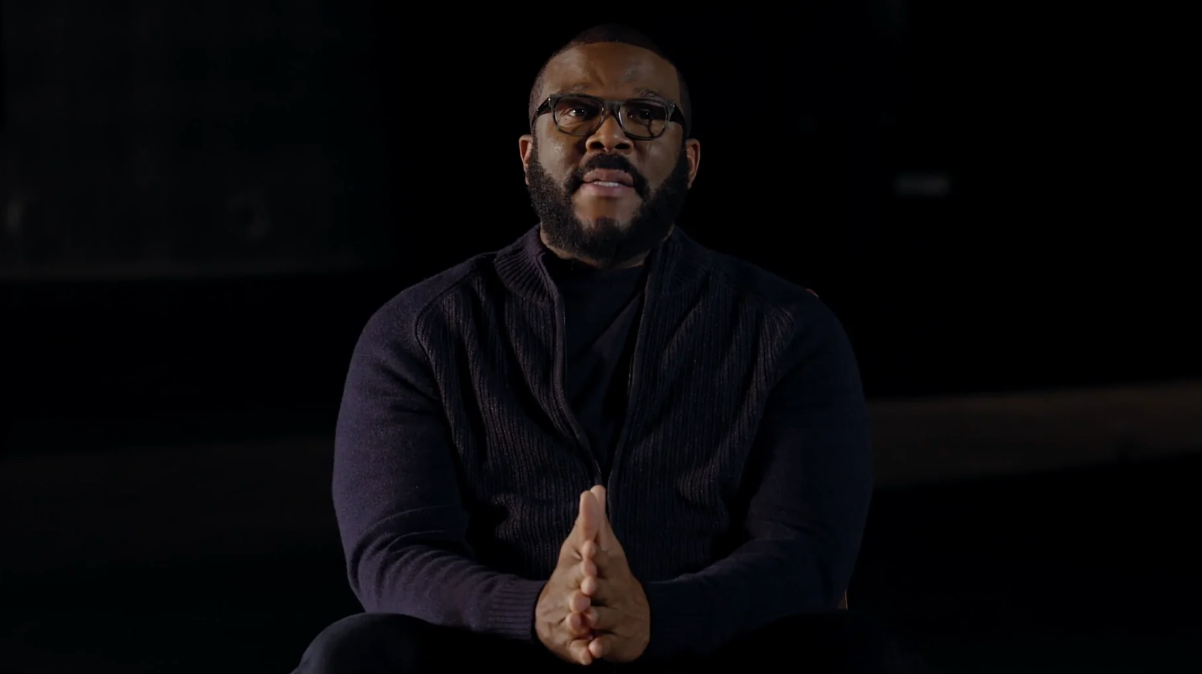At Our Best
To say that 2020 was a year unlike any other might be an understatement. A devastating internal flood in December 2019 meant Grady’s year started in recovery mode, as work to get more than 200 patient care beds back in service was frantically underway. Hospital admissions were high just as news broke that a serious health threat was emerging worldwide. A threat that would soon test our capacity to identify and treat the highly contagious COVID-19 virus.
The challenges were great, but Grady’s resolve was greater. State-of-the-art patient care rooms came back on line. Top-of-the-line, high-volume testing made diagnosing COVID faster for Grady and other hospital partners. And our in-house, world-class infectious disease experts led the charge to cure patients and protect frontline workers.
Yes, 2020 was a challenging year. Yet, our commitment to delivering the highest level of care and creating a healthier community brought great successes and inspiring results. Most of all, it required all of us to be At Our Best.
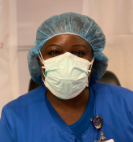

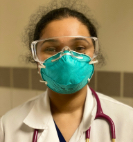
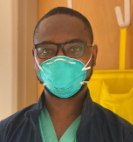
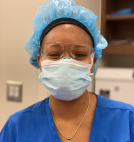
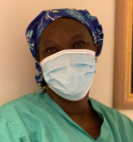
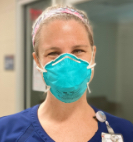
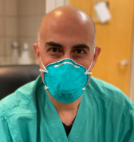
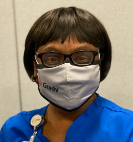
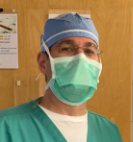
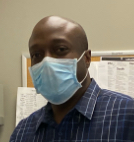
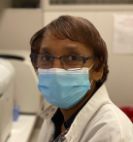
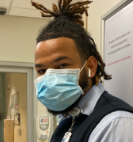
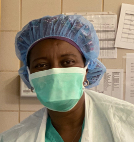
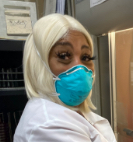
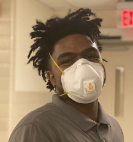
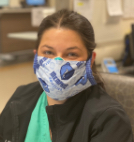
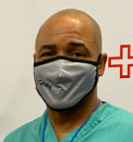
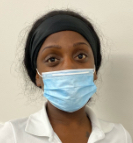
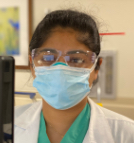
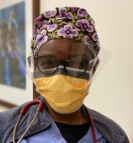
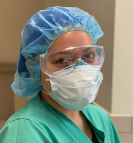
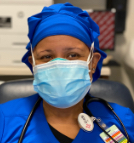
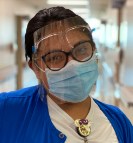
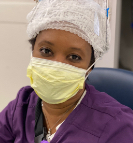
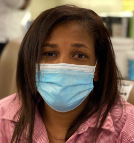
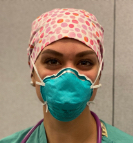
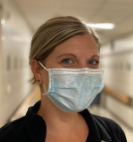
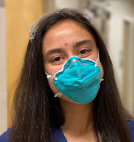
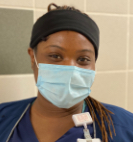
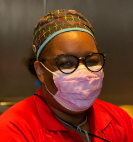
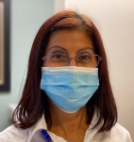
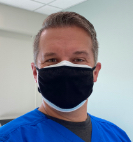
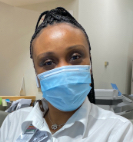
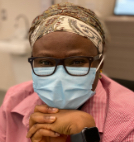
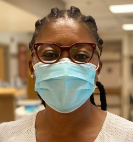
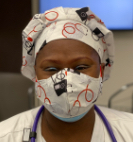
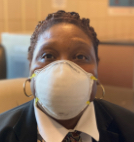
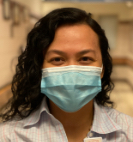
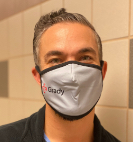
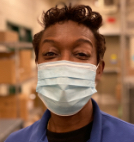
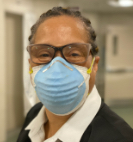
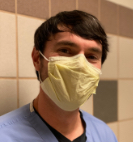
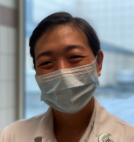
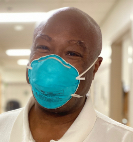
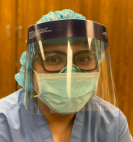
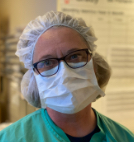
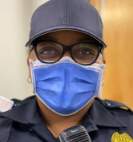
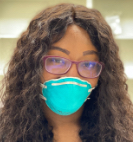
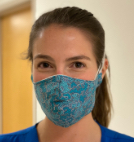
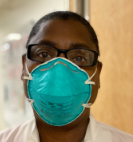
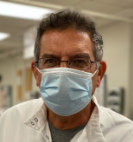
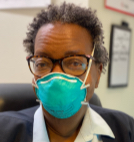
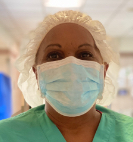
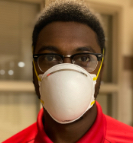
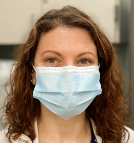
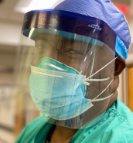
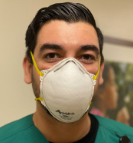
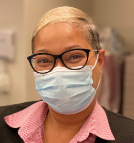
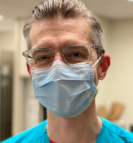
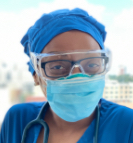
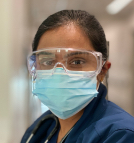
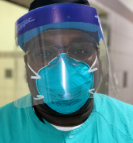
From March
through
September,
15% of Grady
EMS
COVID related.
COVID-19
Grady’s frontline battle against COVID-19 extended well beyond the hospital walls. As case numbers surged and available hospital beds were scarce, Grady partnered with the state to open the Georgia World Congress Center (GWCC) temporary hospital in the spring and again during a summertime surge.
Transfers to the GWCC and ambulance patient deliveries to emergency departments were managed by a new state-supported entity, based on a successful Grady initiated EMS model that started after the hospital flood in 2019. The Georgia Coordinating Center was established to manage patient transports so emergency departments weren’t overwhelmed and ambulance crews got out of hospitals and back in service faster.
Quality patient care went hand in hand with quality staff care. The sudden closing of schools and businesses, coupled with the fear and uncertainty of COVID-19, put staff needs front and center. We quickly mobilized to find childcare options, provide emergency funds for hard-hit families, and offer virtual support sessions with our mental health experts.

Innovation
Quick thinking and quick action were hallmarks of healthcare in 2020. With in-person visits canceled and thousands of patients needing primary and specialty care, Grady rapidly expanded its telehealth services. Whether by video or by phone, patients connected with providers for everything from a wellness check to heart failure monitoring.
Keeping patients healthy also depends on access to needed medications. So we ramped up our pharmacy mail program and delivered more than 190,000 prescriptions to patients – six times the number mailed in 2019. And pharmacy managed all this while processing more than 1.5 million inpatient medication orders and supporting six different COVID-19 treatment trials.

More than 190,000 prescriptions were sent to patients
by mail – six times
the number mailed
in 2019.
Interpreters spent more than 250,000 minutes assisting patients by phone.
Patient Experience
Enhancing the patient experience wasn’t easy during a pandemic, but we got it done. The redesign and rebuild of flood-damaged areas provides more spacious private patient rooms with the flexibility to help us increase capacity during times of surge. Creating more comfortable family visitation space and improving staff workstations and flow were also top of mind.
Improving the settings for patient care went hand in hand with improving patient care comfort and results. As COVID-19 spread in the community, we took steps to mitigate the spread of the virus by stopping or strictly limiting visitation. Knowing that contact with loved ones and friends can have a positive effect on recovery, our Patient Family Experience (PFE) team stepped up to help fill the void.
Our PFE team took on the all too critical task of communicating with loved ones. Armed with iPads, they worked with nursing and physician teams to schedule regular FaceTime calls with family members. Another great example was with our Language Interpretive Services team. For non-English speaking patients, getting through all the pandemic-forced changes in healthcare offered a whole new set of challenges. In addition to facilitating hospital and telemedicine patient-provider sessions, interpreters connected patients with other departments, helping them address many needs in one call. As a result, we saw the most engagement in history with our interpretive services during COVID.
Social Determinates of Health
Food insecurity has long been a struggle for many of our patients. The pandemic and its resulting loss of jobs and business closures created more problems. Improving health through a healthy diet has been the focus of our Food as Medicine program for several years, and the 2020 opening of the new Jesse Hill Market near the hospital’s main entrance couldn’t have come at a more important time.
Working in partnership with the Atlanta Community Food Bank, patients with food prescriptions are able to pick up fresh produce at the market. There are also nutrition and cooking classes to help patients get the most out of the food they receive and understand how diet impacts their health. For those who can’t make it downtown, fresh food carts make sure produce is available to patients at our neighborhood centers.
Helping staff make better food choices is also a goal. So cooking classes and tasting events are scheduled regularly, and healthy food options are available thanks to our partners at Open Hand Atlanta.

Our Food as Medicine program distributed nearly 400,000 pounds of food in 2020.
Phase 1 renovation begins at the Ponce Center.
Addressing HIV/AIDS
Fighting an epidemic during a pandemic – that was the challenge facing our HIV/AIDS specialists, as Atlanta remains one of the nation’s top cities for new AIDS cases. Our Ponce de Leon Center maintained care and contact with thousands of patients, making sure the resources they needed to stay healthy were readily available. At the same time, we launched our PReP program – providing at-risk patients with education and medication that can prevent the spread of HIV.

Community Support
2020 was a challenging year for everyone. Yet through it all, Grady felt the love, support, and generosity of our community. More than 80,000 meals were delivered for staff, along with more treats than we could count. Thousands of cards, letters, and messages filled with thanks, praise, and good wishes lifted our spirits. There was personal protective equipment donated when crucial items were in high demand and short supply. We are sincerely grateful for all that you did and continue to do. Our ties to this amazing community have never felt stronger.

Estimated value of community donations during the pandemic totaled millions.
Grady approached Tyler Perry to help us raise awareness about the safety of the COVID vaccine, particularly given that African Americans are disproportionately affected by the virus. He agreed to assist, but he had a lot of questions. With help from our experts, Perry got his answers and created a BET special to share this important information with millions of people.
The in-depth discussion with two Grady experts addressed common questions and concerns about COVID vaccines.
